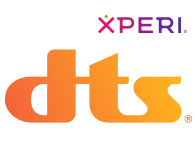
Available today, eARC technology was developed by the HDMI Forum, an organization of over 80 leading consumer electronics companies. An essential part of the new HDMI 2.1 specification, eARC future proofs and significantly improves home theater connectivity. It offers significant enhancements over ARC by improving sound bar, AV Receiver setup, and user experience while supporting more audio formats including DTS:X and Dolby Atmos.
As a founder, contributor, and adopter of the HDMI Specification, Lattice continues to lead the market with the latest HDMI products. The new Lattice receiver and transmitter devices deliver the highest digital audio performance available, up to 37 Mbits/second, and are designed for future compatibility with HDMI 2.1 televisions and home theater products, with built-in lip sync mechanism.

The eARC feature makes the audio device work seamlessly with the TV. The device selection and volume control are performed by the TV remote, as if no audio device is attached at all. eARC uses two pins within the HDMI cable – the same pins intended for the HDMI Ethernet Channel feature – to transmit the low-jitter, high-bandwidth audio, and also bi-directional communication signals, which discover and control the audio feature. This is a great improvement over the old TOSLINK and SPDIF audio outputs, which require a separate cable and connector, and lack the ability to communicate between the audio device and TV.
“DTS (now Xperi) was happy to collaborate with Lattice to develop eARC technology because it solves important, long-term compatibility problems in home theaters,” says Joanna Skrdlant, General Manager, Home Audio & Solutions Licensing at Xperi. “We believe that the new features coming to consumers with eARC will enhance their home theater experience. Audio content can now move freely through listeners' connected TVs, while preserving the incredible experience of DTS:X immersive audio and DTS-HD surround audio found in Ultra HD Blu-ray Discs, Blu-ray Discs and streaming services worldwide.”
“HDMI’s purpose is to deliver two promises to the consumer—provide the highest possible digital audio and video quality, and make it simple through automatic configuration,” said Marshall Goldberg, marketing manager at Lattice Semiconductor. “eARC technology is a tremendous step in home theater connectivity, as it brings vastly higher audio quality than TOSLINK or SPDIF, without the complexity of switching through an AVR device. In addition, its all-new discovery method also guarantees compatibility when products from different manufacturers are connected in a home theater system.”

eARC makes using even the highest performance audio systems as easy as using a TV with the built-in speaker. Key features of Lattice HDMI 2.1 SiI9437 and SiI9438 eARC ICs include:
Availability for both TVs and audio devices
Compatibility with existing HDMI transmitter or receiver ICs using any version of HDMI
Supports both HDMI 2.1 eARC and HDMI 1.4 legacy ARC modes with automatic ARC fallback
eARC control channel functions supported via I2C interface
4mm x 4mm QFN package with 0.4mm pin pitch
Supports eARC Data Channel, including lip sync, discovery, heartbeat, status and capabilities
www.latticesemi.com






